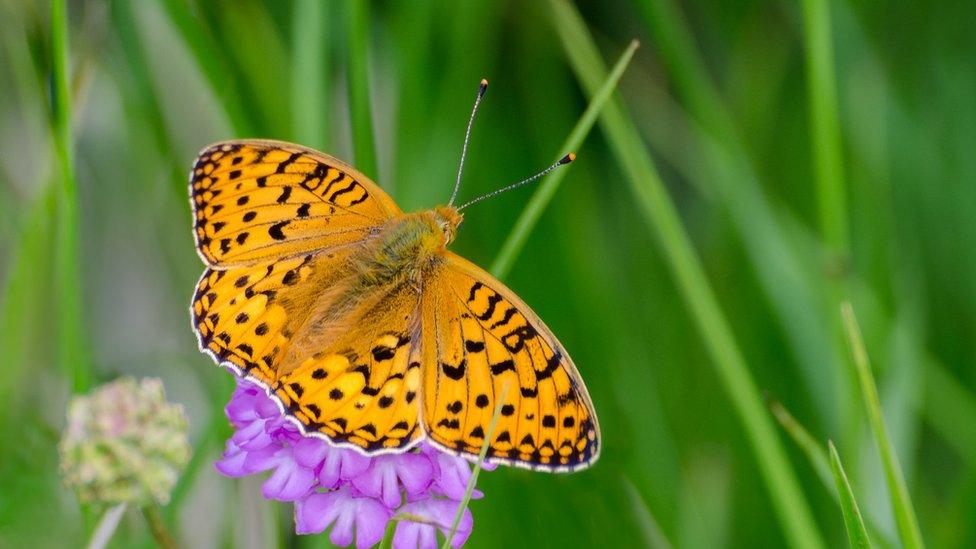'It represents the future,' says butterfly expert
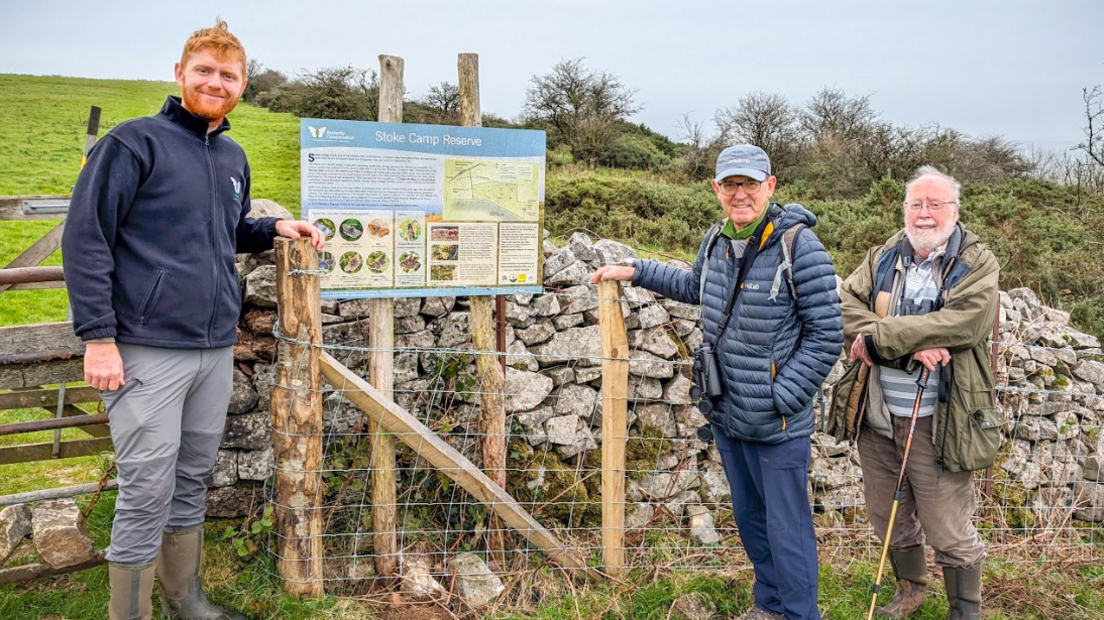
Dr Max Anderson (L) and Stoke Camp volunteer wardens John Ball and Peter Bright
- Published
Butterfly experts are celebrating the completion of an £8,000 project to help Chalk Hill Blues, Brown Hairstreaks and Grizzled Skippers in Somerset.
National charity Butterfly Conservation has erected the new 850-metre boundary around its Stoke Camp nature reserve in the Mendip Hills.
The fence is not to keep butterflies on site, but the all-important cows and sheep that graze the vegetation and create perfect habitat for a host of rare and vulnerable species.
Dr Max Anderson, Butterfly Conservation South West Landscape Officer, said: "This might just look like a shiny new fence to most people but to us this represents the future."
Stoke Camp, 40 minutes south of Bristol, is an 11-hectare nature reserve of rare limestone grassland rising to a height of 265 metres on the Mendip ridge.
Butterfly Conservation, which has managed the site for years, recorded 26 species including Chalk Hill Blue, Small Blue, Dingy Skipper, Grizzled Skipper and Wall there in 2018.
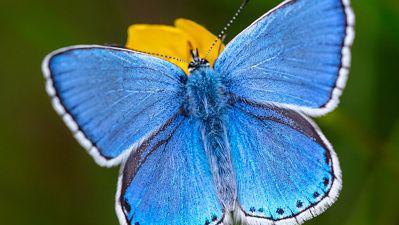
Chalk Hill Blues butterfly can be found at the site
They key to the success of butterflies at Stoke Camp is the help they get from some much bigger animals.
The charity works with a local farmer who grazes sheep and Highland Cattle on the site.
These animals perform vital jobs, eating scrub plants that could otherwise take over the grassland habitat and leaving manure which helps valuable species.
Mr Anderson said: "Making sure the livestock on this site are secure means we can confidently carry on grazing here for another 10 years.
"[We can] help precious rare species recover from decades of damage done by destruction of their natural habitats and overuse of pesticides."
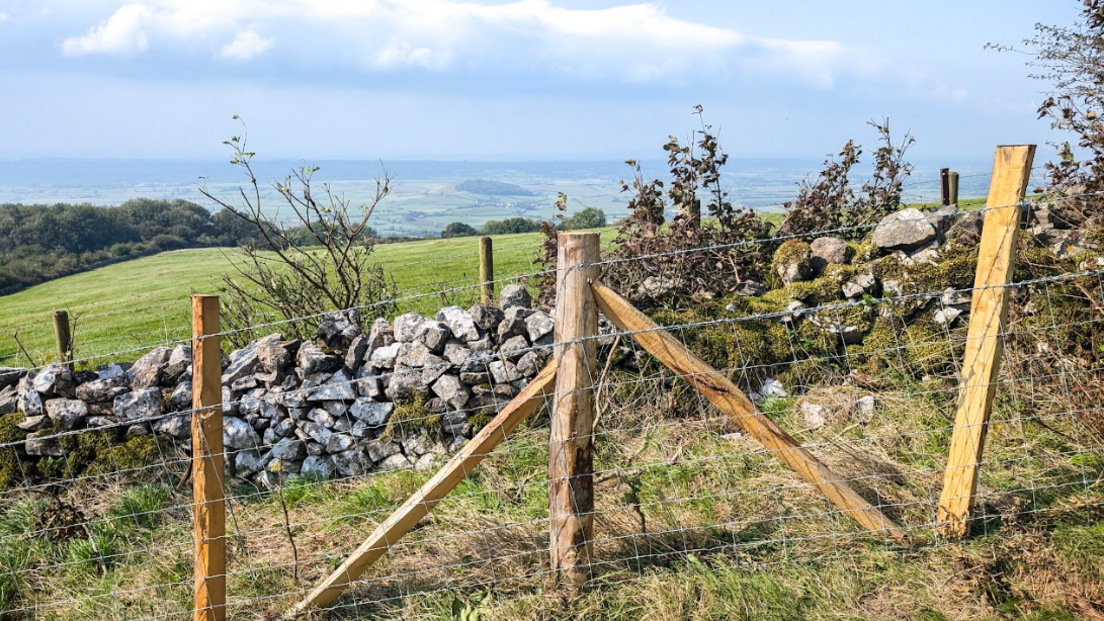
The new stock-proof fence, with solid chestnut posts, took six weeks to install in September and October and should now keep the site secure for another decade
The project, which was made possible by a grant from Valencia Communities Fund, was helped at "every stage" by local volunteers John Ball and Peter Bright, who have worked as honorary wardens for Stoke Camp for years.
"We love this site because we love butterflies," Dr Anderson said. "But they are also vitally important to the environment.
"They pollinate a wide range of crops and other plants, but they are also invaluable indicators of the wider health of the environment.
"If butterflies are doing well, it's a very good sign that the whole ecosystem is doing well, too."
Follow BBC Somerset on Facebook, external and X, external. Send your story ideas to us on email or via WhatsApp on 0800 313 4630.
Related topics
- Published25 August 2022
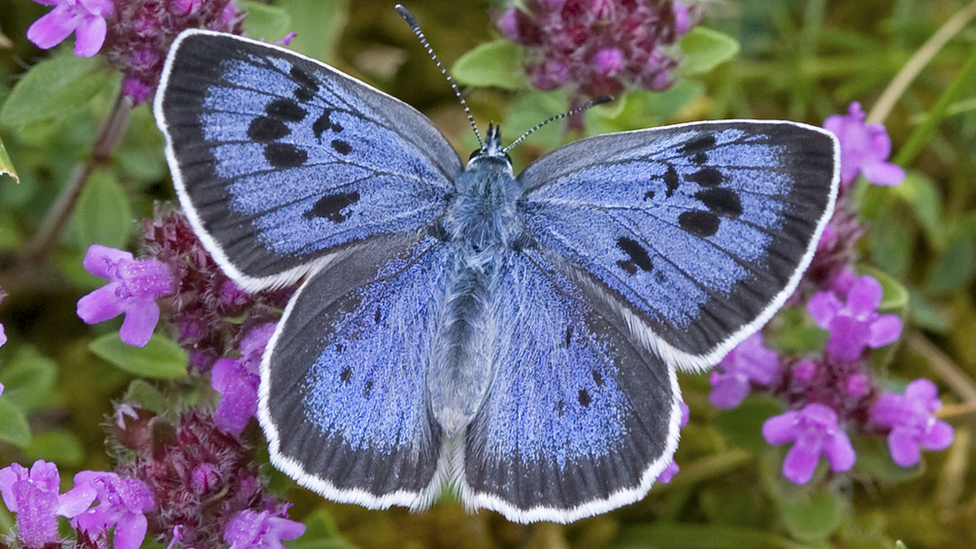
- Published5 December 2023
